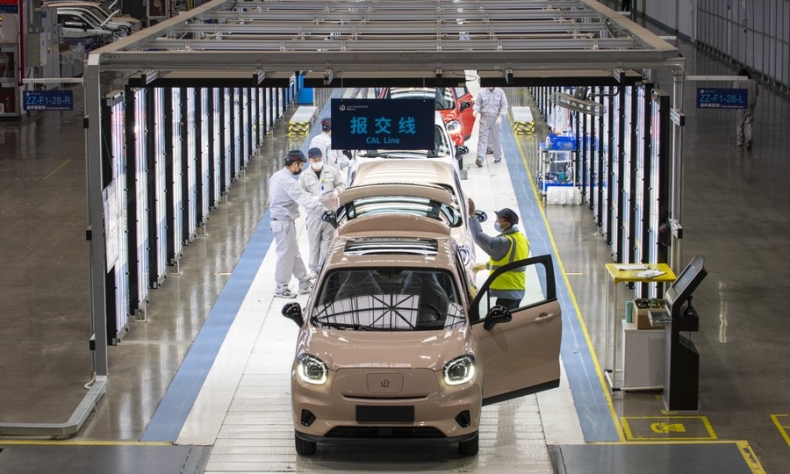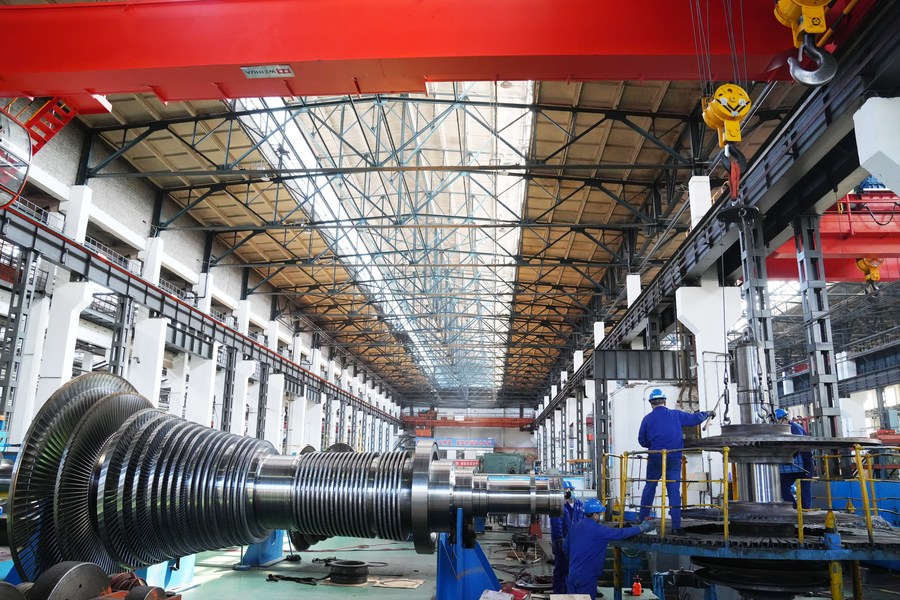Strong Links

Every economy, including China, is a part of the global industrial and supply chain, and the responsibility of ensuring its stability falls on the shoulders of all.
Due to an array of negative factors, such as the COVID-19 pandemic, trade frictions, geopolitical tensions, diplomatic conflicts, and natural disasters, the global industrial and supply chain is now in a bind. With the most complete industrial chain and being among the biggest exporters and importers in the world, China is under close watch by the rest of world. In the first half of this year (H1), in response to resurging COVID-19 cases, Beijing and Shanghai enforced a strict dynamic zero-COVID-19 policy, triggering concerns across the world over China’s role in the global industrial and supply chain.
For now, these worries are undoubtedly overblown. China is taking action to ensure the security of the industrial and the supply chain in major areas. As statistics released by the Information Office of the State Council on June 27 reveal, the volume of China’s railway freight, shipping and postal services in H1 will surpass that of the same period of 2019.
China has always worked hard to safeguard economic globalization and the multilateral trade system. Stabilizing the industrial and supply chains is a significant part of safeguarding economic globalization. On April 18, the State Council held a meeting to discuss how to ensure the smooth operation of the country’s logistics as well as the industrial and supply chains. In May, the State Council issued documents demanding the provision of timely and effective services to foreign-funded businesses to help them out of difficulties.
In the context of globalization, the stability of the industrial and supply chains is the linchpin of global economic growth. The disruption of the chains may result in shortages or stoppages in the supply of crucial raw materials, components and intermediate products. The supply of core technologies and important transport logistics and international payments may also experience interruptions.

Even before the outbreak of COVID-19, global industrial distribution was undergoing profound changes: The world economy is pivoting eastward, the development of technologies is bringing about a new industrial revolution, and climate change and limited resources are driving entities to turn to low-carbon and green business models. The pandemic has heavily hit the industrial and supply chains, and thus ensuring its security has become an important target for major economies. The United States, the European Union, Japan and India have accelerated the adjustment of national policies to stabilize their industrial and supply chains. However, due to restrictive COVID-19-related measures and shocks to the industrial and supply chains from the Russia-Ukraine conflict, practices by these economies to balance the chains have so far failed to function. Particularly, the U.S., from the perspective of ideological differences, is exacerbating the crunch by brandishing sanctions and exercising trade unilateralism.
With a complete industrial system, a crucial role in the global division of labor and ever-increasing industrial competitiveness and capacity for innovation, China has always tried to design its own development schemes to participate in the globalization and contribute to stabilizing the global industrial and supply chains.
China has been committed to supporting the UN’s leading role in governance of global supply chains. It is also ready to collaborate with the rest of the world to promote connectivity in human and information exchanges, trade and cash flows and logistics.
Furthermore, China needs to plan its own role in the global industrial layout and in the construction of the global chains. The country should prepare to cope with damage caused by unilateralism onto the global industrial and supply chains and by certain countries’ deliberately undermining China’s status in the chain.
Every economy, including China, is a part of the global industrial and supply chain, and the responsibility of ensuring its stability falls on the shoulders of all.
 Facebook
Facebook
 Twitter
Twitter
 Linkedin
Linkedin
 Google +
Google +










